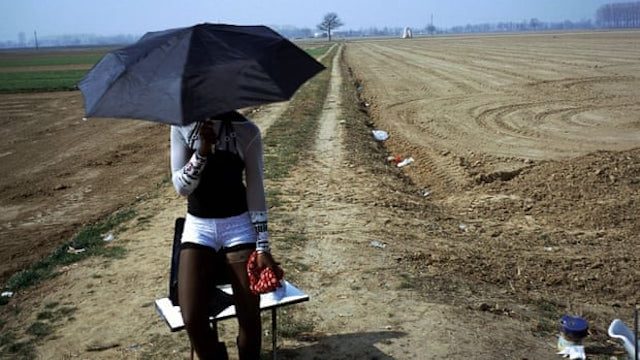Sicilian authorities have made arrests in a sex trafficking ring that saw at least 15 Nigerian girls forced into sex work in Italy.
The arrests include two Nigerian women, Rita Ihama and Monica Onaigfohe, who police believe trafficked the women from Libya to Italy. An Italian man, Giovanni Buscemi, was also arrested on suspicion of helping facilitate their trafficking.
Act Now: Call to Close Libyan Slave Markets.
While the arrests are a positive development, the victims aren’t safe just yet; there is a danger that they will end up homeless in Italy or even deported.
The Guardian reports:
In recent weeks hundreds of people have been removed from reception centres across Italy as part of the populist government’s hardline immigration measures.
The moves come as a part of a concerted push to implement the “Salvini decree” – named after Italy’s interior minister Matteo Salvini. It abolishes humanitarian protection for those not eligible for refugee status, and was passed by the Italian government last year.
As a result hundreds of asylum seekers are now at risk of homelessness. NGOs and aid agencies, including the Red Cross, have warned that victims of sex trafficking are among those evicted.
“If this is true then the decree has been misinterpreted by local authorities,” says Scaminaci. “Nigerian women victims of sex trafficking must always be granted a humanitarian permit or a refugee status because of the consequences they could face if deported back in Nigeria.”
This wouldn’t be the first time victims of human trafficking were evicted from shelters due to hardline immigration policies.
Last month, Blessing, a 31-year-old Nigerian woman who was trafficked for sexual exploitation in Italy, said she had been removed from a center in Isola di Capo Rizzuto, in Calabria.
“When the police came to tell us that we couldn’t stay there any more, I couldn’t believe my ears,” she said.
“They took all of our belongings and escorted us out. There was a young girl in our group. This is outrageous. I have a legal permit to stay. And soon I may not have a roof over my head. I’m really frightened.”
Father Enzo Volpe, a Salesian priest in Palermo who supports Nigerian women, echoes Blessing’s fear.
“Leaving these girls in the street, victims of sex trafficking, is not only inhumane, it also means facilitating the work of criminal organizations,” he said.







Freedom United is interested in hearing from our community and welcomes relevant, informed comments, advice, and insights that advance the conversation around our campaigns and advocacy. We value inclusivity and respect within our community. To be approved, your comments should be civil.